On the banks of the Vistula River, the longest river in Poland is the country’s second-largest city, Krakow. Dating back to the 7th century, Krakow is brimming with history.
A history of kings, churches, and openness with Christians living peacefully alongside Jews. Plus a darker, more recent history, makes Krakow an interesting, yet emotional rollercoaster of a city – and you can’t say that about many ancient cities!
It’s a beautiful city to walk around, packed full of sights to see, but here are just some of the things to do in Krakow on your next trip.
*When looking for the best price and the biggest selection of hotels in Europe check prices on Booking.com, we’ve found they are the best option and have a great cancelation policy.*
1. Explore the Krakow Main Square
The Main Square, or Rynek Główny, in Krakow, is the center of the city’s Old Town. And pretty old it is: the square dates back to the 13th century and, at almost 5 acres, is one of the largest town squares in Europe!
It is big, that’s for sure. Big enough to fit in huge landmarks like the 1,000-year-old Church of St. Adalbert, the 19th century Krakow Cloth Hall – the central monument of the square – the imposing Town Hall Tower, and Saint Mary’s Church, which overlooks the square, both from the 13th century.
The open space is lined with beautiful historic townhouses (kamienice, traditional Polish tenement blocks), making the whole experience of simply walking around this square like something from another time.
The Old Town of Krakow, including the town square, was, in fact, the first thing added by UNESCO to the inaugural World Heritage List in 1978, and seeing it in real life, you can really see why: there is history and beautiful Polish architecture all around you.
We highly suggest booking this private Krakow city tour. It’s only $10 a person and an hour long. This way, you can get an idea of where everything is and where you want to go back and spend more time.
2. Rynek Underground
Under the Main Square is a hidden world of the history of Krakow, this is the museum experience of Rynek Underground. All tucked away in subterranean surroundings, this is a world of medieval markets and ancient chambers, all uncovered by recent excavations before Rynek Underground opened in 2010.
It’s more of an experience than a museum with exhibits, thanks to the holograms and audiovisual effects used throughout, making it a really neat way to soak up some history. And it makes you think that when you’re walking around Krakow to grab something tasty to eat or hit up your next sight, all beneath the streets and sidewalks are the remains of Krakow from the past, which is pretty cool!
3. Wawel Castle
Another part of the Historic Center of Krakow UNESCO World Heritage site, this castle was built in the 14th century by the command of King Casimir III the Great. It’s one of the biggest castles in Poland and represents a lot of different architectural periods, with medieval, renaissance, and baroque buildings based around an Italian-style courtyard.
The crazy patchwork of buildings makes Wawel Castle the perfect sight for an architecture buff, but also the castle hosts a museum with a great selection of Italian Renaissance paintings and the largest collection of Ottoman tents in Europe. Combined with arms and armor, ceramics, sculpture, and a tapestry collection, you can easily spend a few hours in here – days if you’re a real lover of history!
Wawel Cathedral Skip the Line Ticket With Audio Guide
4. Wieliczka Salt Mine
Ok, so you may be thinking, ‘What’s a salt mine doing on this list?’ but really this place is more than just your average salt mine! It continuously produced table salt from the 13th century all the way till 2007.
Today it’s one of the most prominent tourist locations in Poland, designated a Historic Monument, and comes packed with things to do. It spans over 9 levels and goes through a maze of tunnels and rooms, 300 kilometers of them, with the deepest one at 327 meters below ground.
You can go on a tour here and learn about the history of the place and marvel at the statues, chandeliers and four chapels carved directly out of the rock itself – people actually get married down here as one of the chapels is a wedding venue! Notable visitors to the mine over the years include Bill Clinton, Copernicus, and Chopin, to name a few.
The best price we found was on Viator, click here to check rates and book online. It’s best to book in advance, especially during the summer months.
5. Auschwitz
Krakow used to have a thriving Jewish population. In fact, for over a thousand years Poland was home to the most significant Jewish community in the world, as well as the largest, thanks to early religious tolerance among other things, soon becoming known as paradisus judaeorum – ‘Paradise of the Jews’ in Latin. But starting with being absorbed into the Russian empire at the end of the 18th century, Jews began to be increasingly marginalized in Poland.
However, it was during WWII that Nazi Germany invaded Poland and shipped the Jewish population to concentration camps around the country. Over half of the estimated 6 million Jews killed during the Holocaust were Polish.
Much of that happened at Auschwitz, not far from Krakow. Along with Jews, many other nationalities and minorities suffered the same terrible fate. Traveling here by train or bus is easy, but the tour around the place might not be so easy emotionally. It’s a truly heart-wrenching experience.
There are a ton of different tour options varying in length of visit and combined with other nearby attractions, view all Auschwitz tours here. We personally think it was great visiting on our own that way we could go at our own pace.
6. Oskar Schindler’s Factory
In the horrific time for the Jewish population of Poland Nazi occupation during World War II, there is one story that shows humanity was not totally dead. Immortalized in Steven Spielberg’s movie Schindler’s List, Oskar Schindler worked collecting information for the Nazi intelligence service while secretly saving Jewish lives by employing them in the factories that he acquired. By the end of the war, he had saved 1,200 and had spent most of his money on bribing Nazi officials as well as securing supplies for the Jews working for him.
One of those is an enamelware factory in Krakow. Today, that very same factory is an impressive interactive museum and a moving testament that tells the story of the city’s history from 1939 to 1945. Across the street on the former site of the workshops is a recently constructed neomodern building, home to the Museum of Contemporary Art in Kraków (MOCAK).
7. Eat Pierogies
Speaking of food, a trip to Poland would not be complete without trying some of the local food. And that means pierogi – the Polish answer to the Chinese ‘dumpling’. The origins of this tasty morsel are disputed, some say it came from China via Italy, others are convinced that Saint Hyacinth has something to do with their creation, and still more say they originate in Kiev, Ukraine.
What is unanimous, however, is that they are delicious – and diverse! You can fill these doughy parcels with just about anything, from mashed potato, ground meat, and sauerkraut, to cheese and fruit.
But where is the top place to try a pierogi in Krakow? Ranking highly is the Przystanek Pierogarnia (which means ‘Pierogi Station’ in Polish), a quirky canteen style eatery with now a few ‘stations’ under their belt. Closest to the center is their Bonerowska ‘stop’, where the food comes out of a cute and homely hole in the wall that leads to the kitchen – SO worth a try!
One of the best restaurants in Krakow is Pod Wawelem; the food is amazing, and the portions are enormous. There is sometimes a wait, but it’s worth it. The pierogies and schnitzel were the best.
8. Kazimierz
This is the traditional Jewish Quarter of Krakow, and up until the early 19th century, it was an independent, royal city of the Crown of the Polish Kingdom. For centuries, this was the place of Jewish and Polish coexistence. As such, there are Christian churches, like the 14th century Skałka, in the ethnic Polish part of Kazimierz, a lot of synagogues in the Jewish part, and history everywhere!
The Old Synagogue, for example, is the oldest synagogue still standing in Poland, built in the 15th century, and is a precious example of Jewish architecture in Europe – in fact, it is what is known as a ‘fortress synagogue’, a style that borrowed from military architecture due to fears of attack. Elsewhere, the 19th-century Tempel Synagogue, with its Moorish Revival architecture, is still in use.
You can still find Israeli food and drink in the area too – like at Cheder, a cafe which serves Israeli coffee brewed in a Turkish-style pot, and even tasty snacks like hummus. At the end of June every year Kazmierz plays host to the Jewish Culture Festival, Europe’s largest Jewish festival of culture, and if you time your trip right you’ll have a lot of fun here!
9. Ojców National Park
The smallest national park in Poland proves that size isn’t everything! In just over 20 square kilometers, there are caves, castles, ravines, rock formations, and plenty of great hiking trails.
The scenic landscape here has long been admired – Romantic composer Chopin visited here in 1829, for instance – with the famous Skała Biała Ręka or ‘White Hand Rocks’ especially beautiful. As for caves, can you imagine there are over 400 in this small area!
The castles include the renaissance era one at Pieskowa Skała – ‘Little Dog’s Rock’ – a limestone cliff in the park. This is on the tourist-friendly Trail of the Eagle’s Nest, a well-marked route from Krakow to Czestochowa – an area known as the Kraków-Częstochowa Upland. The picturesque Ojców is one of the best examples of the dramatic scenery in the region.
10. Rękawka Festival
At Krakus Mound, the resting place of the mythical founder of Krakow – King Krakus – there used to be a pagan festival held up until the 1880s. Called Rękawka, it took place on the Tuesday after Easter Sunday and is related to the ancient Slavic tradition of Dziady (‘Grandfathers’), a form of honoring your ancestors. However the methods of honoring the dead all involved rolling things down the mound: bread, eggs, coins, and bagels.
Today nobody rolls anything down the hill… But the festival was revived in the 2000s, and in its modern form resembles something closer to a medieval reenactment, attracting people from all over Poland. Great pains are taken to ensure the authenticity of the attire of the participants, the activities, and the food, which attendees can try.
It’s a kooky tradition that’s morphed into something different, and a nice idea if you are in the market for seeing what the locals do for a festival – dress up in armor and eat medieval food, apparently! This year’s Rękawka Festival is on April 18 so keep that in mind if you are in Krakow around this time.
11. Try Traditional Krakow Foods
Another local food to try is the obwarzanek Krakowski, a cousin of both the bagel and pretzel, but not really like either. The snack actually originates from Krakow and it has been given the area-specific Protected Geographical Indication (PGI), which stops products being sold under the same name that does not come from Krakow. So this is really local!
Obwarzanek is a dough that’s twisted together into the shape of a ring, and then par-boiled before being baked. The inside is sweetish, moist, and chewy whilst the outside is golden and crunchy – sounds like a perfect combination!
This is street food, traditionally sold from street carts, so it’s best to take to the streets to find a street vendor who will sell you an obwarzanek – or maybe several after you’ve had a taste. You can find one of these at Grodzka – the Obwarzanki Grodzka – which is close to the historic old town. Otherwise, there’s a non-street vendor shop in the Krowodrza district called Obwarzanki Royal Konrad Topa.
12. Botanic Garden of the Jagiellonian University
The Botanic Garden, as this place is more succinctly known, is part of the Jagiellonian University, which is Poland’s oldest. The gardens, located to the east of the Old Town, are in fact also the oldest botanic gardens of Poland, created in 1783.
The gardens are filled with flowers and plants from around the world, all set in beautifully sculpted gardens. If you love walking around in nature, especially a nice and easy controlled sort of nature like this, then you’ll love the Botanic Garden of Krakow. Because it’s an outside location fair weather is recommended when visiting, and on top of that preferably in summer, too.
However, the Krakow Botanic Garden also features a cool collection of plants in glasshouses that date back to the 19th century. These are especially fascinating and fun to walk around since they are filled with exotic tropical plants that you don’t get to see very often, a massive collection of orchids, and lush leaves that you usually find in rainforests. Plus the glasshouses are warm, which is a plus if it’s not that warm out!
What are your favorite things to do in Krakow?
Leave a comment below with your favorite activities and must-see things in Krakow. These are our favorites but the city is full of history, unique things to do, and amazing food! Leave your best Krakow tip in the comments!
Related Article
Don’t Forget to pin me for later!
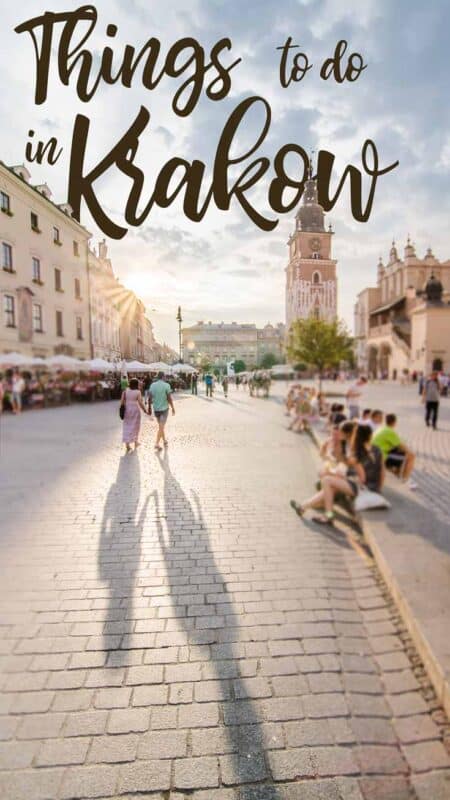
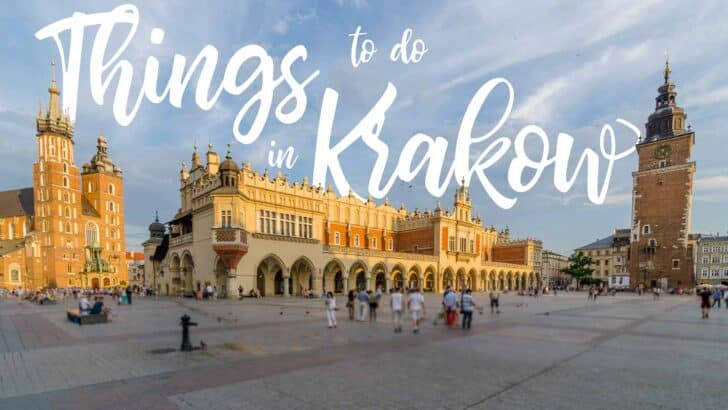
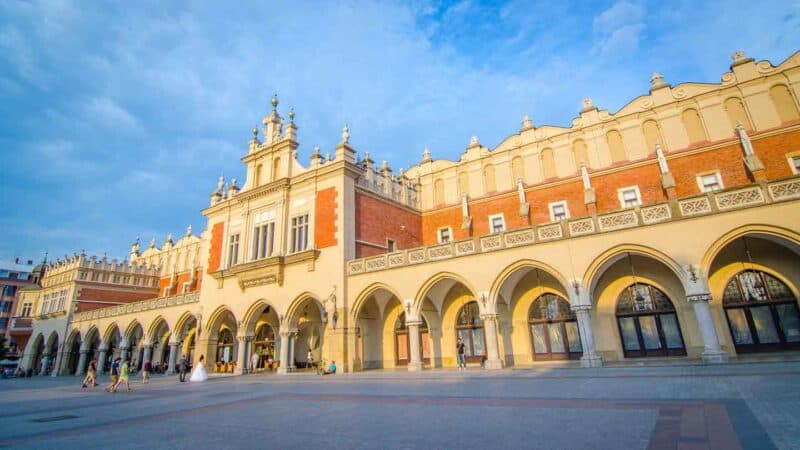
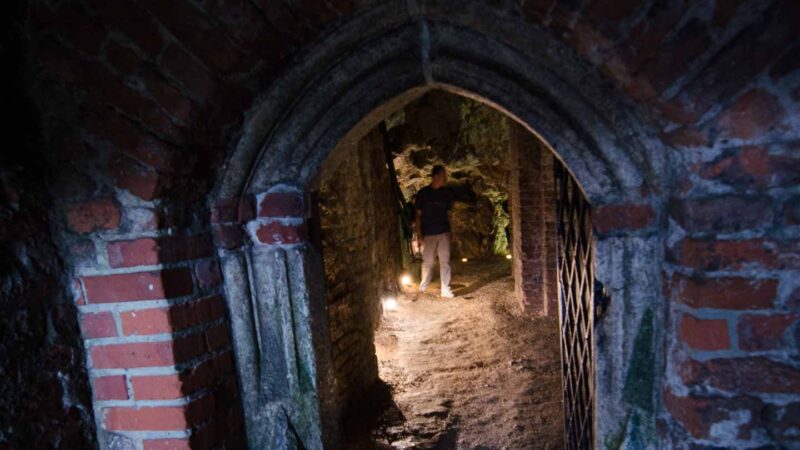
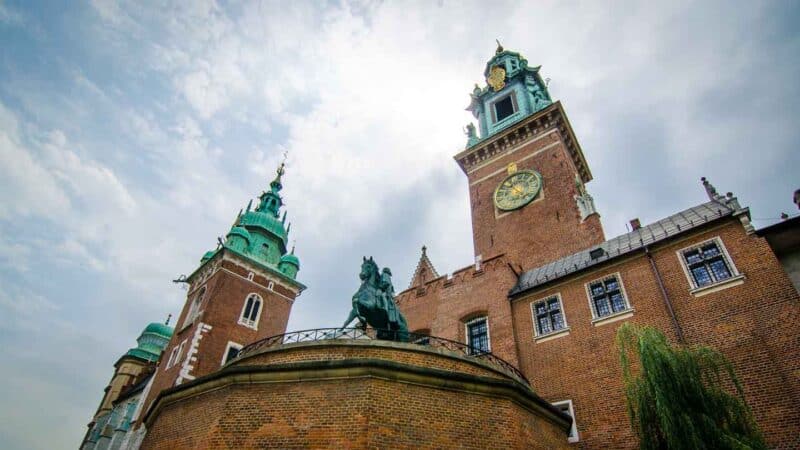
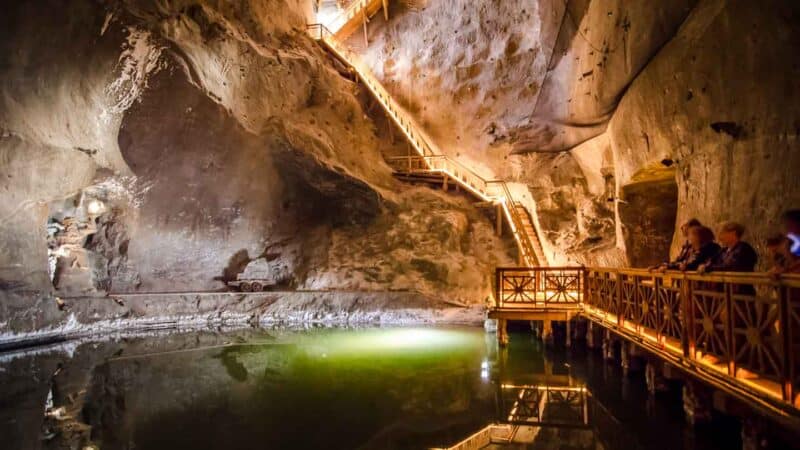
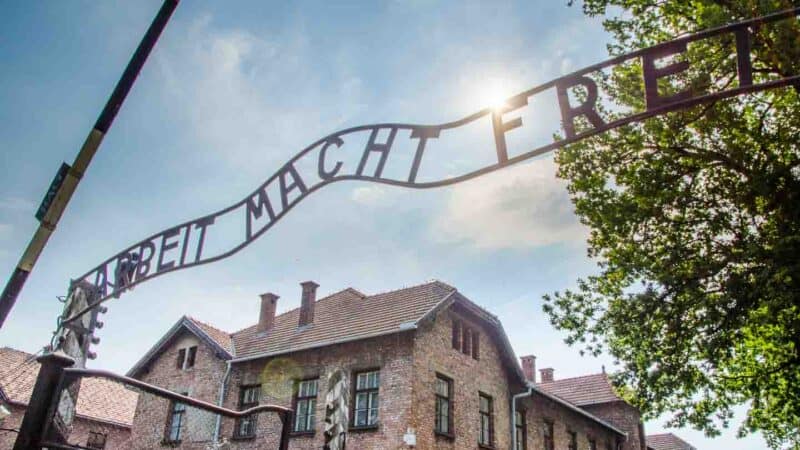
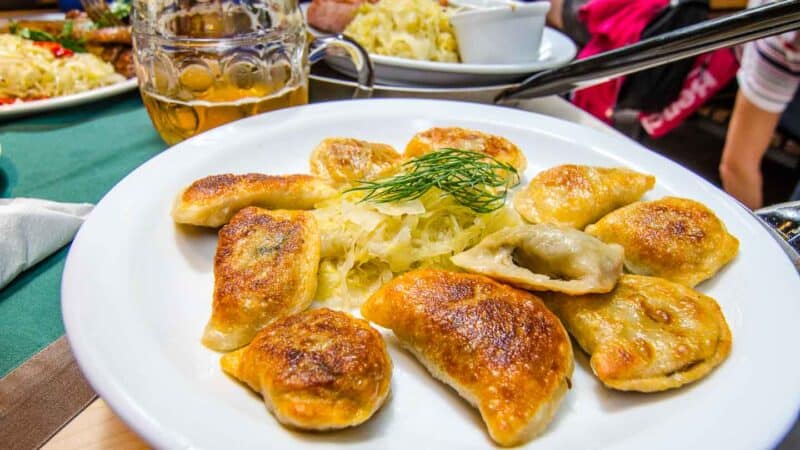
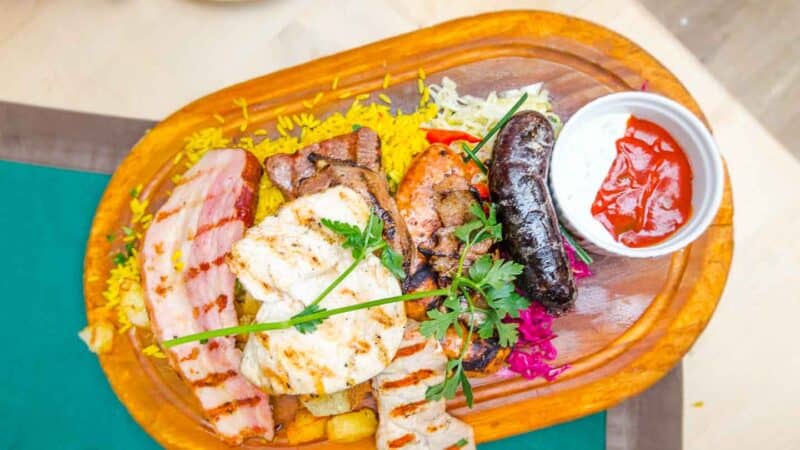
marc fedak
Wednesday 3rd of October 2018
If you happen to like punk, post-punk, ska, reggae and 60s garage rock/psychedelia and happen to be on or near Florianska street, there's a fine pub called Baza Pub just a bit south of the Florian Gate that has that kind of music playing on its sound system with excellent interior decoration and a very good selection of Polish and Czech beer.
Also in the area that's worth checking out if you want English language translations of books about Poland or by Polish authors is American Bookstore at Sławkowska 24A.
roger
Sunday 15th of December 2019
Thanks for your recommendation.I'm going to Warsaw in January with friends so we're seeking nice clubs for a night! We'll check new Orleans for sure !!
Kinga
Monday 19th of March 2018
My must-do thing in Kraków is to peak the Kosciuszko Mound. When you do it, the view is wonderful. I really recommend it!
Adam
Tuesday 20th of March 2018
Thanks for the tip! We'll have to check it out on the next trip!